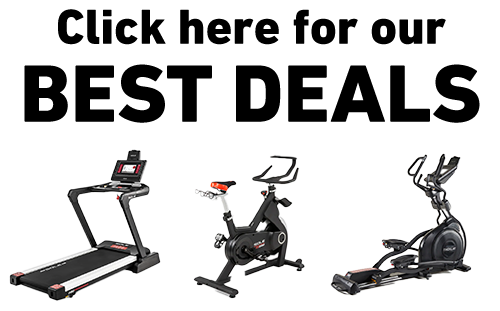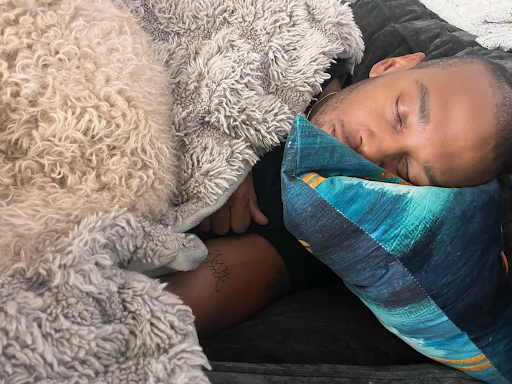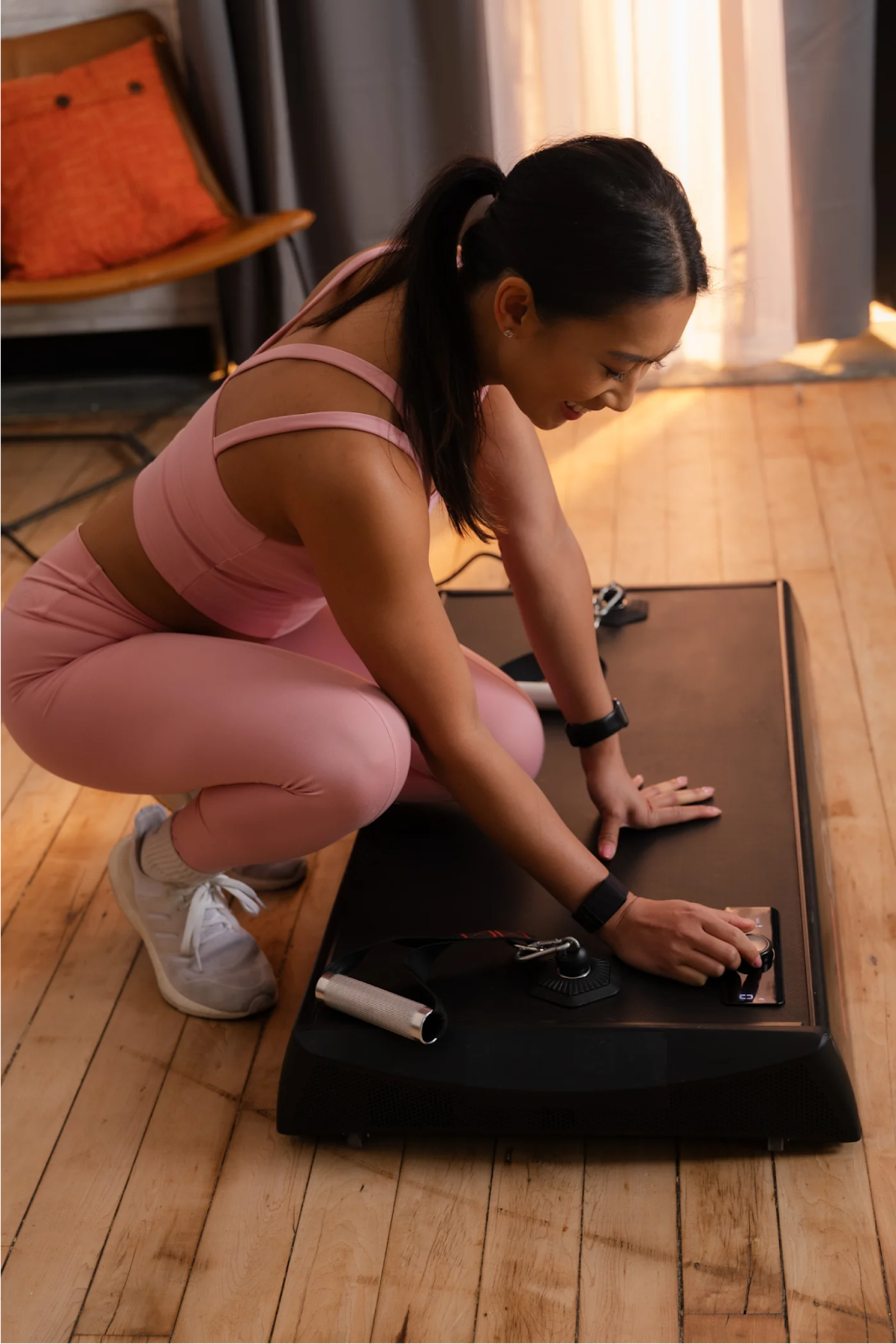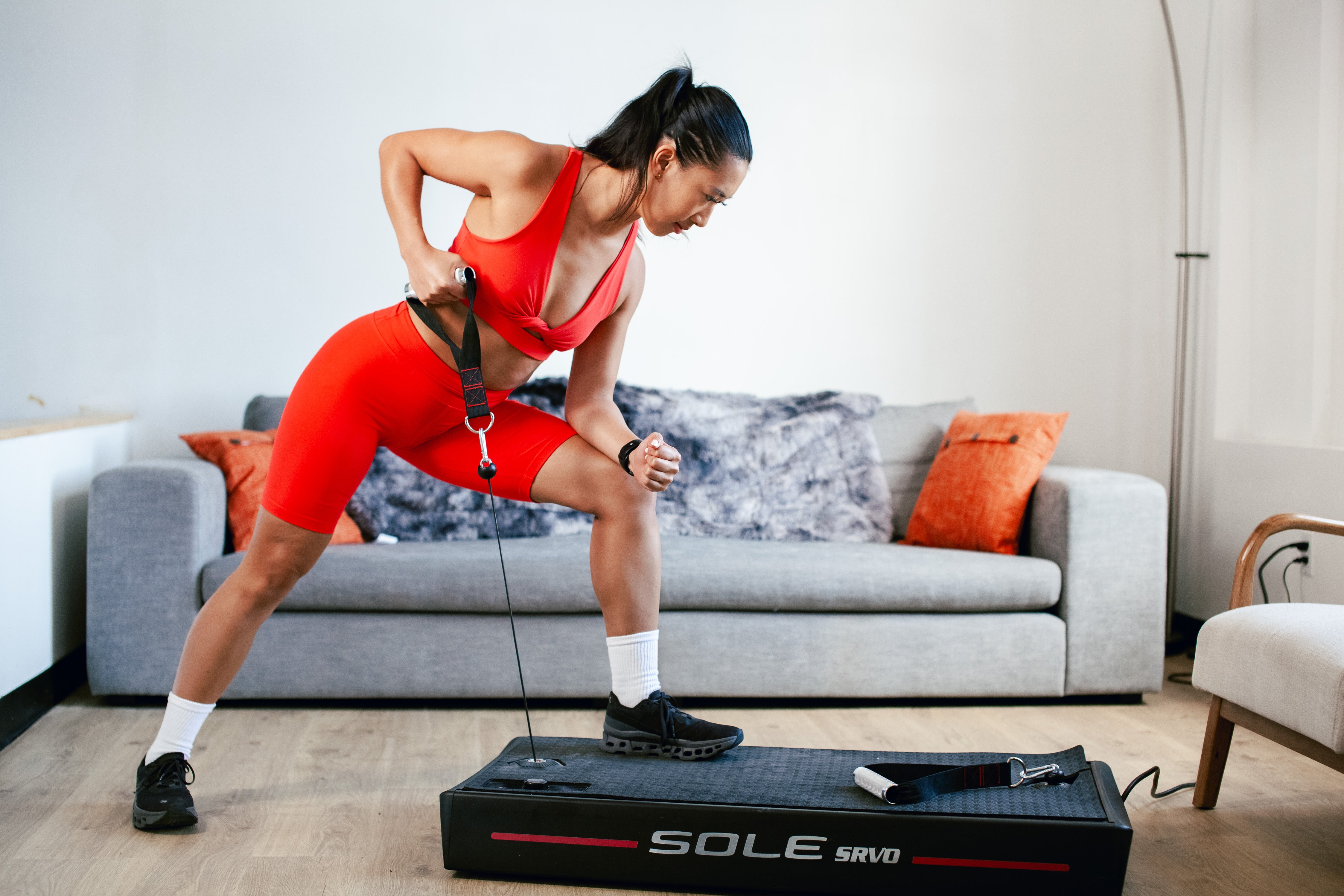Key Takeaways
- Quality sleep aids muscle repair, energy replenishment, hormonal balance, and inflammation reduction.
- A good night's sleep also sharpens focus, boosts creativity, manages stress, and lifts mood.
- Equip your home gym with SOLE treadmills, ellipticals, and bikes to improve your fitness routine while prioritizing recovery and wellness.
We could all use a little more sleep, right? Have you ever noticed the way you feel after a good workout session? The same applies when you recover well and get a great night’s sleep.
What happens is more than just physical - there’s a fascinating synergy between physical exercise, proper rest, and mental clarity. Now let’s learn why hitting the pillow is just as important as hitting the gym.
|
At SOLE, we're proud to offer the best exercise equipment for your home or gym. Our machines like treadmills, ellipticals, and exercise bikes are built to meet the highest quality and performance standards - perfect for fitness enthusiasts at any level. |
The Importance of Sleep for Recovery
After a tough workout, your body shifts into recovery mode while your mind winds down. Here’s what happens during then:
Muscle Repair and Growth
During deep sleep, like REM, human growth hormones (HGH) kick in to repair damaged muscles, build new muscle tissues, and ultimately reduce injury risks. Studies even found that deep sleep significantly increases HGH secretion, while insufficient sleep can lead to reduced levels of this important hormone.
The complete sleep cycle (image courtesy of Verywell Health).
Replenishing Energy Stores
Quality sleep helps replenish muscle glycogen, the stored glucose that powers your muscles during exercise. Getting enough rest ensures these energy reserves are fully restored - so you'll have better endurance in your next workout.
Hormonal Balance
Sleep helps regulate hormones crucial for recovery. Testosterone, which promotes muscle growth and repair, is mostly released during sleep, and lack of rest can disrupt this process. Quality sleep also balances anabolic hormones (which promote tissue building) and catabolic hormones (which break down tissues) - for effective recovery and muscle growth.
Inflammation Reduction
Pushing your body to the limit can cause muscle damage and inflammation. While you sleep, your body produces anti-inflammatory cytokines that help reduce inflammation and speed up healing - essential for reducing soreness and speeding up recovery times.
Mental Benefits of Sleep
- Quality sleep sharpens your attention, learning, and memory. It helps your brain process and consolidate what you’ve learned so it’s easier to recall later.
- Adequate sleep helps you manage stress and emotions better. When you're well-rested, you're less likely to feel irritable or overwhelmed - reducing the risk of anxiety and depression.
- Sleep fosters creativity by allowing your brain to make new connections. A good night’s rest can enhance your problem-solving skills and lead to innovative ideas.
- Getting enough sleep lowers cortisol levels, the stress hormone - this helps you feel calmer and more in control throughout the day.
- A solid night's sleep can lift your mood and give you a more positive outlook on life. It helps you cope with daily challenges more effectively.
- If you’re well-rested, you’ll be sharper and more productive - lack of sleep can lead to poor reasoning and decreased attention to detail.
Sleep contributes more than just physical and mental health benefits - it has holistic health benefits (image courtesy of Uniformed Services University (USU)).
How Much Sleep Do You Really Need?
As recommended by the Sleep Foundation, adults should get between 7 to 9 hours of sleep per night - though the actual duration can vary based on factors like activity level, overall health, and personal circumstances (e.g., recovering from jet lag).
|
Age Group |
Age Range |
Recommended Hours of Sleep |
|
Infant |
4-12 months |
12-16 hours (including naps) |
|
Toddler |
1-2 years |
11-14 hours (including naps) |
|
Preschool |
3-5 years |
10-13 hours (including naps) |
|
School-age |
6-12 years |
9-12 hours |
|
Teen |
13-18 years |
8-10 hours |
|
Adult |
18 years and older |
7 hours or more |
Table showing the sleep duration by age group as recommended by Sleep Foundation.
Interestingly, increasing sleep time by one hour per night could equate to an entire extra night’s worth of sleep over the course of a week.
Keep this in mind when planning your workouts. The end of one workout is the beginning of the next - including recovery, refueling, rehydrating, and sleeping.
Time Your Workouts for Better Sleep
While exercise generally promotes better sleep quality, timing matters as well.
Although it may not always be ideal, depending on your schedule, try to wind down 2 to 3 hours before sleeping. This helps your body cool down and get ready for sleep - which makes for better quality sleep.
High-intensity exercises like doing hill workouts on a treadmill or HIIT training close to bedtime can lead to increased adrenaline and heart rate - making it difficult to wind down.
In fact, experts with the Sleep Foundation said that vigorous exercise within 1 hour of bedtime doesn’t give enough time for core body temperature to cool. This may delay sleep, affect sleep quality, and even lead to more nighttime awakening.
People with insomnia are usually advised to stick to light to moderate exercise at least 4 hours before bedtime - and if you don’t have insomnia, make it 1 to 1.5 hours before bedtime.
If you’re short on time, try to do gentle, relaxing activities (e.g., yoga or stretching) closer to bedtime. Your body will still have time to cool down and transition smoothly into a restful night.
Check out our guide on morning versus nighttime workouts to learn more about which one is right for you.
Final Words
Sleep and exercise work together to enhance each other’s benefits. Prioritizing sleep isn’t “just” about rest - it’s to take your fitness and health routine to the next level.
Giving your body and mind time to recover sets you up for better performance, health, and well-being.
So when planning your workouts, make sure to schedule enough sleep!
Also check out the SOLE equipment - treadmills, ellipticals, exercise bikes, and more - to supercharge your exercise routine.
Frequently Asked Questions (FAQ)
Why is sleep essential for workout recovery?
Sleep promotes muscle repair, replenishes energy stores, balances hormones, and reduces inflammation - meaning, it’s a vital part of the recovery process.
How does sleep benefit mental health?
Quality sleep improves focus, creativity, and emotional regulation while reducing stress and improving mood.
How much sleep should I aim for as an adult?
Adults should get 7 to 9 hours of sleep per night for solid recovery and performance.
When should I avoid exercising to improve sleep quality?
Avoid high-intensity workouts within 2 to 3 hours of bedtime to allow your body to cool down and prepare for restful sleep.
How can SOLE equipment help with recovery?
SOLE’s ergonomic treadmills, bikes, and ellipticals offer low-impact workout options for a balanced fitness and recovery plan.
This post was written by Laison Dunnavant, SOLE Instructor.




Leave a comment
This site is protected by hCaptcha and the hCaptcha Privacy Policy and Terms of Service apply.